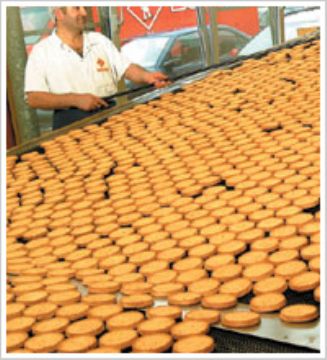Spiral Wire Link Conveyor BeltsApplications/ features
The spiral belt is the ‘mother of all metal belts’ and has a virtually infinite number of versions and applications, from super-strong (for heavy loads over large widths or very hot products) to very dense weaves for small products, unsorted goods or products requiring stable support. The belts have a perfectly round end, even with a small radius, for a good product transfer to the following stage of the process. From transport in glass furnaces and kilns to decorative dividers in architecture, spiral wirelink belts provide a solution for the most complex applications.
Versions
Spiral wire link belts can be divided into three main groups:
- Without pins
- With corrugated pins
- With straight pins
Basic forms
1. Harmonica mesh (type HA) for light products or decorative applications.
2. Spiral belt woven on one side (type SP)
3. Corrugated wire link belt, alternately woven left and right for a straight run (type GS)
4. Straight wire link (type RS)
5. ‘Rod reinforced’ structure specifically for applications at temperatures up to 1200 °C (type RR)
6. ‘Compound belt’ with additional pins and spirals for a very densely woven belt (type CB)
Side finishing
1. With looped edges (can easily be made endless)
2. Or welded (small links that cannot be bent)
3. Fitted with chains
Spiral belts are available in a wide range of materials: not only ferrous metals but also non-ferrous and combinations in a single belt. Also available in various heat-resistant metal types.
Drives
The belt is driven by friction rollers over the entire width of the belt or positively with sprockets in the case of GS belts. The drive is perfectly suited to the application and belt used.
Options
Spiral wire link belts can be equipped with edge plates and/or flights. The pins can be bent upwards in some types, resulting in a standing edge.
